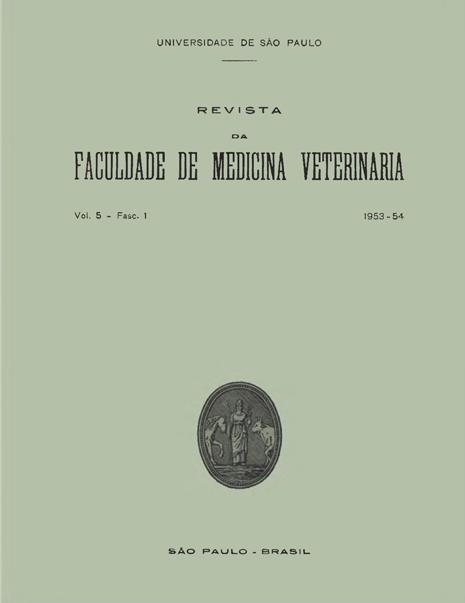Observations on Gasterophilosis in equidae from the region of Araçatuba, State of São Paulo, Brazil
DOI:
https://doi.org/10.11606/issn.2318-5066.v5i1p17-26Keywords:
The article has no keywords.Abstract
Post mortem examinations made by the A. in some dozens of horses that died from various causes in one farm in Araçatuba, State of São Paulo, during the years of 1948 and 1949, revealed gasterophilosis in all of them. The search for “bot-fly” eggs on the hairs of about 300 horses of the same farm was also positive in all of them. 20 horses and 5 mules were then put in individual pens and their foeces carefully examined for 30 days, at the end of which 19 horses and 1 mule had passed larvae with their foeces, the percentual of positivity being for the total group 80%. 56 of the larvae were cultivated, the adults ecloding in from 15 to 25 days. As many authors mention 30 to 40 days for this fase, we include graphics showing variations in temperature, atmospheric pressure and air humidity during our study, which could perhaps explain the differences in our results. By the study of the 3rd instar larvae and adults of the fly, we diagnose it as belonging to the especies Gasterophilus nasalis (Linnaeus, 1758).


